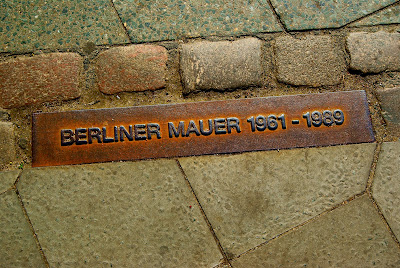Monday, October 31, 2011
Friday, October 28, 2011
Wednesday, October 26, 2011
Facts #005
Deepavali
popularly known as
the "festival of lights".
The name
"Diwali" is a contraction of "Deepavali" (from Sanskrit: दीपावली), which means "row
of lamps". Diwali involves the lighting of small clay
lamps (diyas or dīpas) filled with oil to signify the
triumph of good over evil.
- The festival starts with first day of Dhanteras on which most Indian business communities begin their financial year.
- The second day of the festival, Naraka Chaturdasi, marks the vanquishing of the demon Naraka by Lord Krishna and his wife Satyabhama.
- Amavasya, the third day of Deepavali, marks the worship of Lakshmi, the goddess of wealth in her most benevolent mood, fulfilling the wishes of her devotees. Amavasya also tells the story of Lord Vishnu, who in his dwarf incarnation vanquished the Bali, and banished him to Patala.
- It is on the fourth day of Deepawali, Kartika Shudda Padyami, that Bali went to patala and took the reins of his new kingdom in there.
- The fifth day is referred to as Yama Dvitiya (also called Bhai Dooj), and on this day sisters invite their brothers to their homes.
For Jains, Diwali marks the attainment of moksha or nirvana by Mahavira in 527 BC.
Greetings in Hindi: Deepavali ki Shubhkamnayein (दीपावली की शुभकामनाएं)
Greetings in Gujarati: Shubh Diwali ane Nutan Varshabhinandan / Saal Mubarak.
Greetings in Marathi: Shubh Deepavali/ Diwalichya Shubhechha (शुभ दीपावली /दिवाळीच्या शुभेच्छा )
In Southern
India, the festival is called Deepavali.
Andhra Pradesh:
Deepavali
is one of the seven most important festivals of Andhra Pradesh. It is very popular with children
who celebrate Deepavali because of the excitement of bursting firecrackers. Some
areas host local stage story telling called Hari Katha. Some areas may put a
huge Narakasura dummy made with firecrackers. This will be burst by a person
dressed as Lord Krishna or, more accurately, a costume of Satyabhama, the consort of Lord Krishna, who actually killed the demon Narakasura; an event that is celebrated as
Deepavali for generations.
Greetings in Telugu: Deepavali Shubhakankshalu (దీపావళి శుభాకా౦కలు).
Karnataka:
Narakasura
vadha is the main
day, with celebrations involving bursting firecrackers at dawn after Lakshmi
puja. It is celebrated as Narakachaturdashi in Karnataka,
Greetings in Kannada: Deepavali Habbada Shubhashayagalu (ದೀಪಾವಳಿ ಹಬ್ಬದ ಶುಭಾಷಯಗಳು).
Kerala:
Kerala is the only state in India where Diwali is not
a major festival. Traditionally, Deepavali celebrations in Kerala are on a low
key affair. The native people of Kerala do not celebrate Diwali. But places in
Kerala where prominent Tamil, Bengali and various North Indian communities
resides, Diwali Festival is celebrated with great zest. People of these
communities arrange grand feasts and go to temples and fairs, visit friends and
relatives.
Greetings in Malayalam: Deepavali Aashamsagal (ദീപാവലി ആശംസകള്).
Tamil Nadu:
In Tamil Nadu
it is celebrated as Deepavali they celebrate this by lighting deepams, bursting fireworks, wearing new clothes and
sharing sweets. A traditional visit to the Temple is a significant ritual of
the day. The entire house is cleaned and new clothes are purchased for the
entire family which is followed by lighting of oil lamps around the house and
bursting firecrackers. The city Sivakasi in Tamil Nadu is the capital of India’s
firework industry with about 8,000 factories, producing 90 percent of the
country's total fireworks output. It also has the world's largest fireworks
manufacturing unit. The evening sky of Deepavali is a colourful sight to watch.
Greetings in Tamizh/ Tamil: Deepavali Nalvaazhtukkal (தீபாவளி திருநாள் நல்வாழ்த்துக்கள்).
Deepavali
is celebrated for different reasons, occurring between mid-October and
mid-November. For Hindus, Diwali is one of the most important festivals of the
year and is celebrated in families by performing traditional activities
together in their homes.
Courtesy: Wikipedia.
Tuesday, October 25, 2011
Monday, October 24, 2011
Friday, October 21, 2011
Thursday, October 20, 2011
Wednesday, October 19, 2011
Jokes #003
In October 1993, in Iran, where celebratory gunfire is traditional at weddings, a guest named Rasool lost control of his automatic weapon at a wedding in the Lorestan province, accidentally killing six people and wounding fourteen of them.
I think I'll stick to the tradition of throwing rice -- it seems much less dangerous.
Tuesday, October 18, 2011
Monday, October 17, 2011
Monday, October 10, 2011
Thursday, October 6, 2011
Wednesday, October 5, 2011
Tuesday, October 4, 2011
Monday, October 3, 2011
Subscribe to:
Comments (Atom)





















